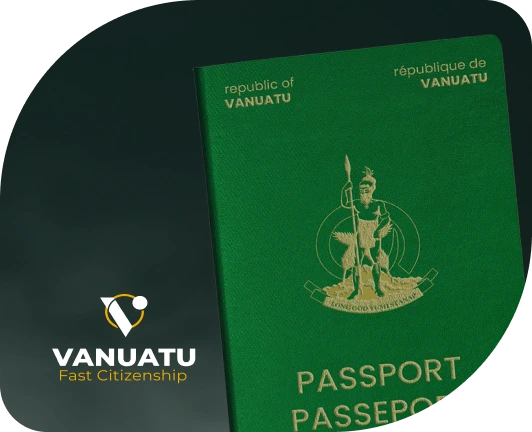Vanuatu Tax Benefits for Business and Individuals
Vanuatu remains one of the most attractive jurisdictions for international business and tax planning. With no personal income tax, no corporate tax, and minimal government intervention, the country continues to be a preferred destination for entrepreneurs, investors, and multinational corporations. This favorable tax environment allows businesses to optimize financial operations and reduce tax liabilities while complying with global transparency standards.
Get a consultation
Starting a Business in Vanuatu
Are you looking to register a business in Vanuatu and take advantage of its Vanuatu tax benefits? Need professional guidance on tax obligations? Our team offers comprehensive legal support for business registration, tax optimization, and regulatory compliance. We assist in company formation, opening corporate bank accounts, structuring tax-efficient operations, and ensuring adherence to international financial reporting standards.
- Tax Benefits in Vanuatu
- Personal Income Tax
- Corporate Tax
- Taxes for companies
- Property Taxation
- Rental Income Tax
- For Legal Entities
- Financial and Tax Transparency
- Peculiarities of Tax Reporting
- Economic Substance Requirements
- Tax resident in Vanuatu
- Citizenship by Investment Program
- Why Choose Us?
- FAQ
Tax Benefits in Vanuatu
Looking to understand Vanuatu taxes? Vanuatu has built a reputation as a business-friendly jurisdiction with clear and transparent tax laws in Vanuatu. The country actively attracts foreign investors by offering equal tax benefits to both residents and non-residents, making it a highly desirable location.
Here’s a breakdown of the unique Vanuatu tax rate structure and its benefits:
- No Personal Income Tax – Salaries, dividends, interest, and other earnings are entirely tax-free for individuals residing in Vanuatu.
- No Capital Gains Tax – The sale of shares, real estate, and other assets in Vanuatu is not subject to taxation.
- No Inheritance or Gift Tax – Wealth transfers, including inheritances and gifts, incur no tax obligations in Vanuatu.
- No Corporate Tax (0% corporate tax on profits) – Instead of a corporate tax, Vanuatu businesses pay a fixed annual fee of approximately €300, regardless of profit levels.
- Value Added Tax (VAT) at 12.5% – Applies to most goods and services in Vanuatu. Businesses exceeding an annual turnover of approximately 4 million vatu (~$35,000 USD) must register for VAT.
Personal Income Tax in Vanuatu
Vanuatu stands out with its attractive tax system for individuals. One of the key benefits is that both Vanuatu tax residents and non-residents aren’t required to pay income tax on most of their earnings. Regardless of where an individual earns their income (be it salary, dividends, interest, or other sources), this income is entirely tax-free in Vanuatu.
In Vanuatu, there’s no requirement for individuals to participate in the Central Income Revenue Identification Database (CIRD). However, it’s important to note that while there’s no income tax, VAT (Value Added Tax) at 12.5% is levied on most goods and services consumed within the country.
Corporate Tax in Vanuatu
This system simplifies compliance and allows businesses to reinvest earnings without the burden of heavy taxation. This 0% corporate tax makes Vanuatu an exceptionally appealing jurisdiction for global companies seeking offshore tax benefits.
- No corporate income tax for both domestic and international companies.
- Businesses pay a fixed registration fee (~€300 annually).
- No mandatory financial reporting requirements for offshore companies, though Economic Substance regulations may apply for international operations.
Taxes for companies in Vanuatu
Vanuatu offers an extremely attractive tax regime for legal entities, fostering business development and international investment. A key benefits is the complete absence of corporate income tax.
| Tax | Rate | Description |
|---|---|---|
| Corporate Tax | 0% | Unlike most jurisdictions, companies registered in Vanuatu don’t pay tax on their profits. This means all earned funds can be reinvested in developing your business or distributed to shareholders without corporate-level tax deductions. |
| Annual Registration Fee | from $300 to $1000 USD | Instead of corporate tax, companies in Vanuatu pay a fixed annual registration fee. Its size ranges from $300 to $1000 USD, depending on the company’s type and structure. This fee is predictable and significantly lower than the tax burden companies would face in other countries. |
| Mandatory Provident Fund Contributions | 6% | Employers in Vanuatu are required to make contributions to the Vanuatu National Provident Fund (VNPF) for their employees. These contributions amount to 6% of the employee’s gross salary. These contributions go towards ensuring future pension payments for employees and are a standard social security guarantee. |
Property Taxation in Vanuatu
Property ownership in Vanuatu offers attractive conditions, as the country does not levy an annual property tax. This significantly reduces the ongoing burden of property ownership compared to many other jurisdictions. However, it’s important to be aware of certain fees and taxes associated with real estate transactions and income generation from property.
- No Annual Property Tax: Property owners in Vanuatu are not required to pay annual taxes based on the assessed value of their property. This is a significant advantage for long-term investors and homeowners.
- No Capital Gains Tax on Real Estate Sales: Profits realized from the sale of real estate in Vanuatu are not subject to capital gains tax. This encourages real estate investment and maximizes returns upon property disposition.
- Registration Fee on Transactions: Upon the purchase or registration of property, a registration fee of 2% of the declared property value or contractual price is levied.
- Stamp Duty on Transactions: In addition to the registration fee, real estate transactions are also subject to Stamp Duty, which is a fixed 5% of the declared property value or contractual price. This duty is paid upon property purchase or transfer of ownership.
- VAT (Value Added Tax) on the Purchase of Commercial Real Estate: For the purchase of commercial real estate in Vanuatu, a VAT of 12.5% applies.
- Import Duties on Construction Materials and Furnishings: Import duties may be charged when bringing construction materials and furnishings into Vanuatu. Rates vary from 0% to 20% depending on the category and type of goods imported. Specific projects, especially in tourism, might be eligible for exemptions.
Rental Income Tax in Vanuatu
Rental income tax in Vanuatu has specific characteristics, varying depending on whether the landlord is an individual or a company.
| For Individuals: | |
|---|---|
| Rental income tax is charged every six months on amounts exceeding VT 200,000 (approximately $1,600 – $1,800 USD). If the rental income for a six-month period is below this threshold, no tax is levied. If the threshold is exceeded, a 12.5% tax rate applies. Tax payments are made in two stages: | For the period from December 1st to May 31st, payment is due by June 28th. |
For the period from June 1st to November 30th, payment is due by December 28th. |
For Legal Entities (Companies):
Rental income tax rules for companies differ from those for individuals. If a company owns a property in Vanuatu and rents it out, a 12.5% tax is applied to all rental income, with no threshold exemption.
Financial and Tax Transparency in Vanuatu

Although Vanuatu offers significant tax benefits, companies registered in this jurisdiction must comply with evolving international financial regulations to ensure adherence to global standards. The country continues to strengthen its regulatory framework in line with the Financial Action Task Force (FATF) recommendations to combat money laundering and the financing of terrorism. Vanuatu actively works on improving transparency measures, strengthening due diligence procedures, and enhancing oversight mechanisms to align with international best practices.
Confidentiality and Information Exchange
The confidentiality of financial data in Vanuatu is upheld. Banks in Vanuatu guarantee the confidentiality of their clients, and their operations do not allow access to a company’s financial data or the personal information of owners without due legal authorization. Therefore, opening a bank account in Vanuatu does not entail additional risks to your confidentiality.
Furthermore, although Vanuatu currently does not participate in the OECD’s Common Reporting Standard (CRS) for automatic financial data exchange, its financial institutions strictly comply with Know Your Customer (KYC) and Anti-Money Laundering (AML) measures. Banks and financial service providers require clients to provide comprehensive identity verification, proof of origin of funds, and detailed documentation to meet international banking security standards. Vanuatu also complies with FATF requirements and has concluded Tax Information Exchange Agreements (TIEAs) with a number of countries.
Peculiarities of Tax Reporting for Companies in Vanuatu
If you have an international company registered in Vanuatu, you are obliged to keep accounting records and track capital and currency flows. However, it is important to note that you are not required to submit reports on these data to the Vanuatu Customs and Inland Revenue Department (CIR).
Economic Substance Requirements
For businesses operating in global markets, economic substance requirements can also play a crucial role. Depending on the nature of their activities, some companies registered in Vanuatu may need to demonstrate a physical presence, maintain operational offices, or employ local staff if they wish to claim Vanuatu tax residency benefits.
To navigate the complexities of global regulatory compliance, businesses should seek professional legal and financial guidance. Ensuring full adherence to the latest Vanuatu tax laws, reporting requirements, and international transparency standards is essential for maintaining operational legitimacy and minimizing potential risks associated with non-compliance.
How to become a tax resident in Vanuatu?
To obtain Vanuatu tax residency status and enjoy all its benefits, you generally need to meet the following conditions:
- Physical Presence: Spend at least 183 days within Vanuatu in a calendar year.
- Legal Status of Stay: Possess a valid residency permit, which can be acquired through various grounds, including:
- Self-Funded Resident Visa
- Spouse Visa
- Employment Visa
- Leasehold Holder Visa
- Citizenship by Investment
- Establishing a Permanent Base: Have a permanent place of abode in Vanuatu (whether owned or rented property).
- Demonstration of Ties: Establish clear economic and social connections with the country. Examples of such connections include holding bank accounts with local financial institutions, engaging in business activities (both local and international), or owning assets such as real estate.
Vanuatu Citizenship by Investment Program
The Vanuatu Citizenship by Investment Program offers path to obtaining tax residency status. Foreign investors who contribute to the country’s economy can apply for citizenship without the need for lengthy residency, language tests, or personal interviews. This represents one of the most direct and efficient ways to establish tax residency and benefit from all of Vanuatu’s significant tax advantages.
Citizenship under this program can be obtained through two main routes: the Vanuatu Capital Investment Immigration Plan (CIIP) or the Development Support Program (DSP). Both avenues require a financial contribution to Vanuatu’s national development.
To be eligible for the Vanuatu Citizenship by Investment Program, applicants generally must meet the following concise criteria:
- Age: Be over 18 years old.
- Health: Provide a clean medical certificate, demonstrating good health.
- Clean Record: Have no criminal record.
- Investment (DSP): Make a minimum financial contribution of $130,000 USD to the Development Support Program (DSP).
Why Choose Us?

- Comprehensive Support – We guide clients through every step, from application submission to approval.
- Expert Knowledge of Vanuatu’s Legal System – Ensuring accuracy and efficiency in all processes.
- Strategic Tax Planning – Helping businesses maximize benefits while complying with regulations.
- Confidential and Secure Services – Protecting client data and financial information.
Contact us today to receive a free initial consultation tailored to your business needs. Our experts will assess your situation, suggest optimal solutions, and provide a step-by-step action plan. Whether you are interested in registering a company, opening a corporate bank account, or applying for investment citizenship, we ensure a smooth and legally compliant process.
Get in touch now and take the first step toward financial freedom and global business expansion!
Is Vanuatu taxed for non residents?
Vanuatu taxes do not apply to non-residents. There is no personal income tax in Vanuatu, and the Vanuatu tax rate for individuals and international companies is effectively 0%. Foreign investors enjoy full Vanuatu offshore tax benefits, including 0% corporate tax. If you’re wondering “is Vanuatu tax free?” — the answer is yes, especially for those seeking a tax-efficient jurisdiction.
What is the least taxed country?
The Vanuatu tax rate is highly competitive, especially for international businesses. Vanuatu taxes do not include personal income tax, and there is 0% corporate tax for offshore companies. These Vanuatu offshore tax benefits make the country attractive to global investors. Taxes in Vanuatu are among the most favorable worldwide.
How to become a tax resident of Vanuatu?
To obtain tax residency and benefit from Vanuatu offshore tax advantages, including 0% corporate tax, individuals must hold a valid residence permit and live in Vanuatu for at least 183 days per year. This allows access to favorable Vanuatu tax rates and confirms eligibility for tax in Vanuatu. For many, Vanuatu taxes remain minimal — or even nonexistent.

